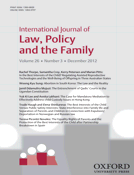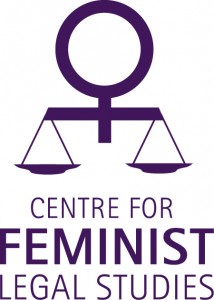Speakers: Profs. Isabel Grant, Mary Liston and Efrat Arbel
Join us for the final CFLS lecture of this academic year. Three feminist faculty members will discuss important 2013-14 decisions at different levels of court, and their implications for gender equality in Canada. Pizza will be provided.
R v Hutchinson, 2014 SCC 19
Does one consent only to engaging in a sexual act or do the circumstances of that activity, such as whether the sex is protected or unprotected, come within the concept of consent? Prof. Grant will consider this decision’s important implications for sexual assault law & HIV nondisclosure prosecutions. The absence of a feminist intervener group in the case is evident in the majority and minority opinions.
Saskatchewan v Whatcott, 2013 SCC 11
Prof. Liston will focus on the intersection of human rights and constitutional law in the SCC’s judgment, and the important role of human rights bodies in facilitating access to justice in Canada.
Inglis v British Columbia, 2013 BCSC 2309
This case involved the constitutionality of the Mother-Baby Program at Alouette Correction Centre for Women. Prof. Arbel will focus on the court’s comparator group analysis under s. 15 of the Charter.
When: Tuesday, 25 March @ 12:30 PM
Where: Room 123, Allard Hall (1822 East Mall)
Click here to view the event poster.
For the full CFLS lecture schedule, see https://blogs.ubc.ca/cfls/lectures/


